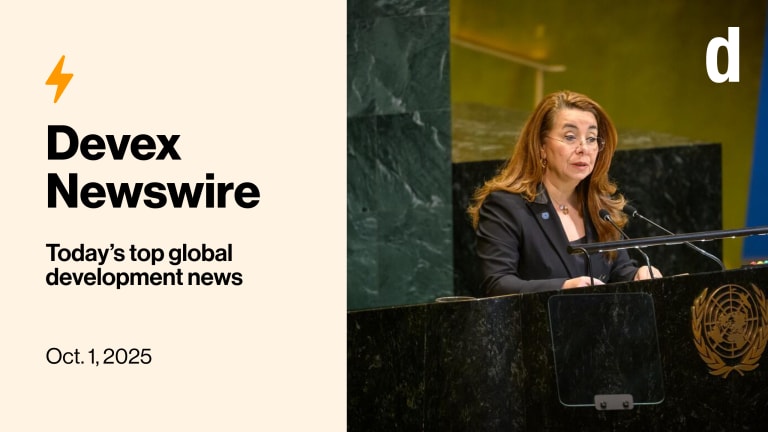Cuts to USAID funding have had a serious short-term impact on health services on the African continent, but they may also create opportunities in the long term, as they force governments to rethink health policies.
That’s the view put forward by Kennedy Odede, founder of Shining Hope for Communities, known as SHOFCO — a Kenyan community-based organization delivering health and education services, and community advocacy, among other things, in informal settlements.
Odede was speaking at Devex Impact House during the high-level week of the 80th United Nations General Assembly.
This story is forDevex Promembers
Unlock this story now with a 15-day free trial of Devex Pro.
With a Devex Pro subscription you'll get access to deeper analysis and exclusive insights from our reporters and analysts.
Start my free trialRequest a group subscription







